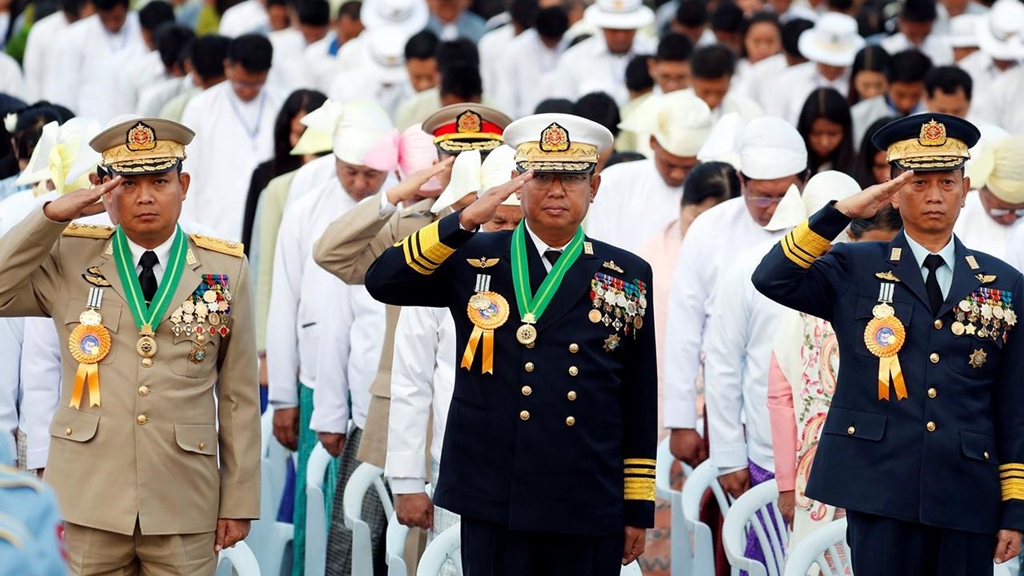
Canadian pension funds investing in multinational companies with ties to Myanmar’s military
- 01/10/2020
- 0
By Nathan Vanderklippe, The Globe and Mail
Some of Canada’s largest public investors hold shares in companies that the United Nations has accused of doing business with entities owned by the military in Myanmar, where the armed forces stand accused of committing genocide.
The Canada Pension Plan Investment Board, the Caisse de dépôt et placement du Québec and the British Columbia Investment Management Corp., or BCI, are among the large Canadian investors in multinational companies that have partnered with the Myanmar military, or Tatmadaw, whose “economic interests enable its conduct,” according to a 2019 report to the UN Human Rights Council.
In early September, the Canadian government joined with the Netherlands and Gambia in a genocide case against the Myanmar security services before the International Court of Justice. A UN fact-finding mission, which documented military economic links and recommended the investigation and prosecution of senior military officials for genocide, has not called for immediate divestment from those companies. But it has called for vigilance and activism.
“Where you have public pension funds in a country whose government has joined a genocide case against Myanmar – I think it’s bleedingly obvious that those investors need to ask some very serious questions about the companies’ operations in which they’re investing,” said Chris Sidoti, an Australian human rights lawyer who was one of three international experts on the fact-finding mission.
“If these companies are enabling the military to make money, and that money is being used for military operations, then it can be used for all of the human rights atrocities that the military commits.”
The fact-finding mission recommended that foreign companies sever ties with Myanmar military-related entities – which includes ports, mines, real estate holdings, beverage companies, steel mills, banks, golf resorts, a coconut oil factory and an indoor skydiving facility – since the Tatmadaw’s corporate activities provide it autonomy from civilian oversight and supports its “operations with their wide array of international human rights and humanitarian law violations.”
The mission also identified 45 companies that had provided donations to the Tatmadaw to support 2017 “clearance operations” against the Rohingya, a group largely driven out of Myanmar by a murderous campaign in which those who escaped described people being killed, women being raped and children being burned to death. Armed forces torched homes, according to numerous accounts among the 711,000 Rohingya who fled to Bangladesh since August, 2017.
Among the donor companies is Myanmar Brewery, which is partly owned by Kirin Holdings, the Japanese drinks conglomerate. Kirin, which subsequently banned charitable donations in Myanmar, has received widespread condemnation for its actions in the country.
But Canadian pension funds, including the CPPIB, Caisse and BCI, have continued to hold shares in Kirin, according to their latest disclosure documents, which do not reflect real-time holdings.
Those documents show the funds also hold shares in other foreign companies with a history of doing business with Myanmar military entities. Those companies, which are not all held by each fund, include China’s COSCO Shipping, Indian consultancy Infosys and port operator Adani, South Korean steel maker Posco, Siam Cement and LafargeHolcim. The Ontario Municipal Employees Retirement System holds shares in Infosys, while the Alberta Teachers’ Retirement Fund Board owns stock in Adani.
COSCO has rented space in a military-owned luxury complex. Infosys has done contract work for a military-owned bank. An Adani company agreed to pay US$290-million to lease military land for a container terminal. A Siam company operates in a military-owned industrial zone. A LafargeHolcim company in Myanmar shared board leadership with a military-owned firm. Posco operates two joint ventures with military firms.
The Canadian government has imposed sanctions against one of those, Burma Posco Steel Co. Ltd., as well as against Myanmar Brewery.
At the same time, some of the companies are global corporate leaders, a complicating factor for pension fund managers.
Among the Myanmar military-related stocks owned by CPPIB, for example, “are highly-reputable multinational companies providing their clients with exceptional products and services,” said Michel Leduc, global head of public affairs and communications for CPPIB.
Part of CPPIB’s “portfolio includes exposures to quantitative, index-based securities globally in our focus on maintaining a prudent level of diversification,” he said. “In other words, we face a universe of up to 10,000 securities, potentially falling into the scope of our portfolio at any given time.”
The Caisse de dépôt et placement du Québec “does not have any direct investments in Myanmar in respect of Canadian sanctions,” said spokesman Conrad Harrington. “As part of our index-based management mandate, we have an immaterial passive exposure to certain companies that are conducting business in Myanmar as they are part of some indices.”
The British Columbia Investment Management Corp. declined comment. OMERS and Alberta Teachers’ Retirement Fund Board did not comment in response to Globe and Mail requests.
British Columbia Investment Management Corp. declined to comment. Ontario Municipal Employees Retirement System and Alberta Teachers’ Retirement Fund Board declined comment or did not respond to requests for comment.
Critics called for fund managers to take more responsibility.
“These funds are benefiting from these criminally-complicit businesses in Myanmar. That is unacceptable,” said Yadanar Maung, the assumed name used by a spokesperson for Justice for Myanmar — a group of activists who work anonymously to protect their safety. The Myanmar government recently blocked the group’s website for, it said, spreading fake news.
Ms. Yadanar Maungcalled for Canadian pension funds to “push Kirin, Posco and other business partners of the Myanmar military to cut all ties. Failing that, they have no option but to divest from these companies. “
Mr. Leduc would not comment on whether CPPIB had demanded change at its shareholdings.
“As a global institutional investor, we are careful and responsible about the public comments we make about such considerations related to publicly traded companies,” he said. “Ultimately, being so judicious is in the best interests of contributors and beneficiaries.”
Private lobbying can work, said Mr. Sidoti, the human rights lawyer. And, he said, “if these foreign companies are supporting the non-military economy in Myanmar, I support it. What I find totally unacceptable is that foreign shareholders are not using their influence to ensure proper ethical investment in Myanmar, away from military-owned corporations and business.”






